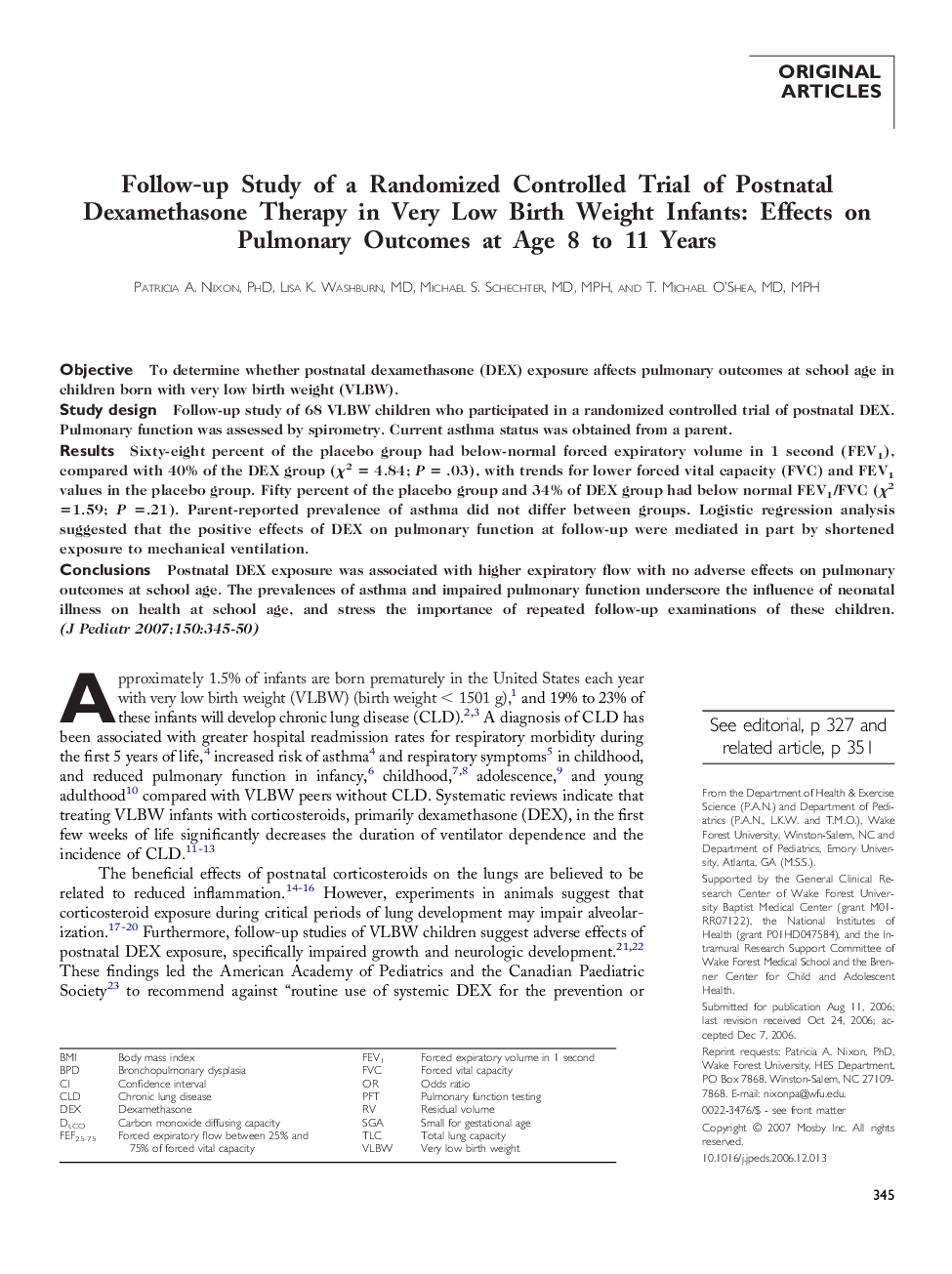| Article ID | Journal | Published Year | Pages | File Type |
|---|---|---|---|---|
| 4168695 | The Journal of Pediatrics | 2007 | 6 Pages |
ObjectiveTo determine whether postnatal dexamethasone (DEX) exposure affects pulmonary outcomes at school age in children born with very low birth weight (VLBW).Study designFollow-up study of 68 VLBW children who participated in a randomized controlled trial of postnatal DEX. Pulmonary function was assessed by spirometry. Current asthma status was obtained from a parent.ResultsSixty-eight percent of the placebo group had below-normal forced expiratory volume in 1 second (FEV1), compared with 40% of the DEX group (χ2 = 4.84; P = .03), with trends for lower forced vital capacity (FVC) and FEV1 values in the placebo group. Fifty percent of the placebo group and 34% of DEX group had below normal FEV1/FVC (χ2 =1.59; P =.21). Parent-reported prevalence of asthma did not differ between groups. Logistic regression analysis suggested that the positive effects of DEX on pulmonary function at follow-up were mediated in part by shortened exposure to mechanical ventilation.ConclusionsPostnatal DEX exposure was associated with higher expiratory flow with no adverse effects on pulmonary outcomes at school age. The prevalences of asthma and impaired pulmonary function underscore the influence of neonatal illness on health at school age, and stress the importance of repeated follow-up examinations of these children.
